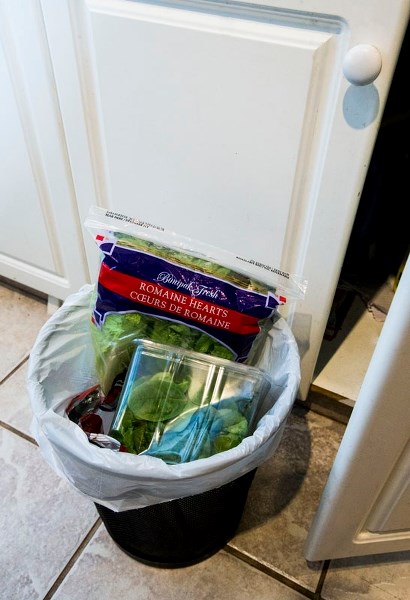Canada could save about $31 billion a year if it took steps to eliminate food waste, guests at a recent food conference heard.
About 220 farmers and food advocates learned about food waste last weekend at the Edmonton Expo Centre as part of the 2017 Cultivating Connections Alberta Regional Food Systems Forum.
The forum drew some 80 experts from across the continent together to share ideas about how to improve food security and support local agriculture.
The forum included a session Sunday on where waste is hiding in Canada's food system.
It's actually not hiding, said speaker Rob Ironside, a consultant with the Leftovers Foundation, which collects food set to be thrown out by local businesses and delivers it to charities. Go to any conference, and you'll find a huge amount of waste in the form of excess ingredients and catering trays laden with unwanted sandwiches.
"A perfect example would be yesterday," he said, referring to the forum's free breakfast. He said he saw tonnes of leftover eggs, yet those eggs weren't being used to make, say, egg salad sandwiches for the free lunch on Sunday.
Waste isn't hiding, he said.
"It's right in front of your face."
Expensive problem
About a third of all food produced in the world is wasted between farm and fork, said speaker Christina Seidel, executive director of the Recycling Council of Alberta, citing data from the UN Food and Agriculture Organization.
"Just about half of it actually happens with us," she said.
Research by Value Chain International suggests that consumers create about 47 per cent of Canada's food waste, Seidel said. That costs us about $31 billion a year in food. Add in labour, transportation and other costs, and the bill rises to $107 billion.
"If we can be more efficient, we can save a lot of money," Seidel said.
We could also take a big bite out of our carbon footprint. The UN estimates that food waste is responsible for about eight per cent of the world's greenhouse gas emissions, Seidel said. If it were a nation, it would be second only to China and the U.S. in terms of emissions.
Much of this waste is due to policy. U.K. food waste campaigner Tristram Stuart estimates that up to 40 per cent of the food produced on farms never reaches stores because it doesn't meet aesthetic standards, Seidel said.
"We have these standards that say if the food is not pretty, it's not going to sell," she said. That's not true – both Superstore and Save-On Foods specifically market fruits and vegetables that are misshapen or "ugly," and have had great success selling them.
Ironside said some waste is due to poor planning, such as when vendors overestimate the amount of food they need for an event. The Leftovers Foundation managed to collect some 1,260 kilograms of excess food at the close of last year's Calgary Stampede just by asking vendors for it.
"One vendor donated 27 bags of flour," he said. The vendor was headed to the U.S. and didn't want to bring it through Customs.
Homeowners have a similar problem, Aurea Siemens of the City of Edmonton's waste management department suggested. When her department asked Edmontonians about the nature of the food they threw out, about half said they were throwing out leftovers, with many saying that they had food waste because they bought or made too much food.
We're obsessed culturally with buying in bulk and have lost the skills needed to preserve food, Seidel said. As a result, we tend to buy too much without a plan to use it, and end up throwing food in the trash.
"We need to get smarter about what we buy and how we buy it."
Seidel called on communities to follow Calgary's lead and require all institutions, industries and businesses to have recycling and organic waste programs in place by 2019.
Ironside encouraged companies to think about how to avoid making it.
"Every kilogram of waste you don't make, you don't pay for."




